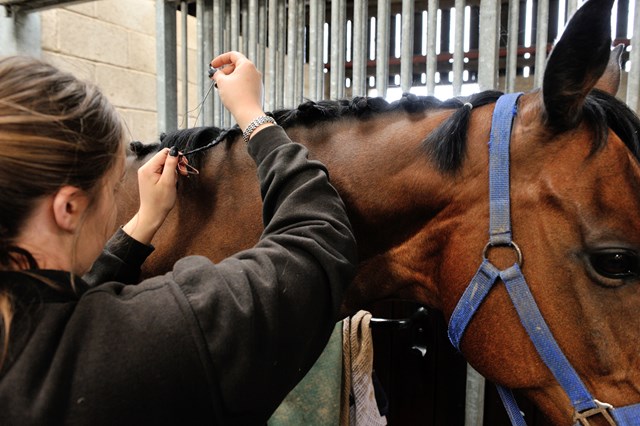Myerscough involved in equine end-of-life research
- Published
- Thursday 21 Dec 2017
Myerscough College has been involved in a three-year study into horse owner attitudes to equine end of life.

The research, coordinated by Advancing Equine Scientific Excellence (AESE) and supported by World Horse Welfare and The Donkey Sanctuary, has revealed that nearly three quarters of horse owners without previous experience of equine end of life have no plan in place.
The research, which is the first of its kind in the UK, collected data from more than 2,500 participants using a combination of depth interviews, focus groups and an online survey. Not only did the research set out to understand why owners do or do not feel able to make equine end of life decisions and the thought process undergone to arrive at these, but it also looked to determine what additional information and support is required to help owners in making these essential decisions.
The study found that only one in eight equids die suddenly which means that most owners will be faced with making an end of life decision at some stage; however, less than a third of those who had not previously lost an equine had any sort of plan in place. Participants who had experienced equine end of life were asked what advice they would give to other owners and the majority stressed the importance of having a plan in place.
Furthermore, the research also found that end-of-life decisions are not just for older animals, with the number of equids who die aged 7-10 years being similar to those aged 26-30 years.
The key influence in owners’ end-of-life decisions was their own assessment of quality of life, but many felt they needed more support in doing so, with around half of owners wanting more information on this and so World Horse Welfare is working to develop a quality of life tool which will provide support for owners in assessing their individual equine.
World Horse Welfare Head of UK Support, Sam Chubbock said: “End of life is understandably a very difficult subject for horse owners and as a result it can be tempting to avoid thinking about it until you are faced with the decision.
‘’However, it is critical that all owners take time to give this some thought whilst their horse is still fit and well rather than waiting until they are facing a devastating situation. I would personally like to thank each and every owner who took time to respond to such an emotional study – it is clear from so many of the comments how difficult it was for them to say goodbye to their companions so I am enormously grateful to them for sharing their experience with us.
“The AESE research has shown that whilst many horse owners do not make a plan, those who have experienced end of life urge others to think about it now and would echo our advice in stressing just how important this is from both a practical point of view and to help remove at least some of the stress from what is a very emotional time.
“Our existing ‘Just in Case’ materials are available to help owners with information and planning around end of life matters, and we would urge horse owners to download and read through these documents, plus fill out the plan which can be then kept somewhere safe until it is needed.
“There is undoubtedly a perception that as an owner you won’t need to think about the decision until your horse is in old age, but the research shows that it can happen at any time of their life and so it is vital to be prepared. As one horse owner said, you should be organised because if your horse, who is your best friend, is in trouble then you need to be able to help them as quickly as possible.”
Dr Faith Burden, director of research and operational support at The Donkey Sanctuary said: “This has been an enlightening project, and we are grateful to have been involved. End of life is such an emotional time for owners, however having a plan in place can alleviate some of the stress surrounding saying goodbye to a beloved companion. Taking the time to plan ahead really is in the best interests of the donkey.”
To download World Horse Welfare’s Just in Case materials visit: http://www.worldhorsewelfare.org/Just-in-Case
